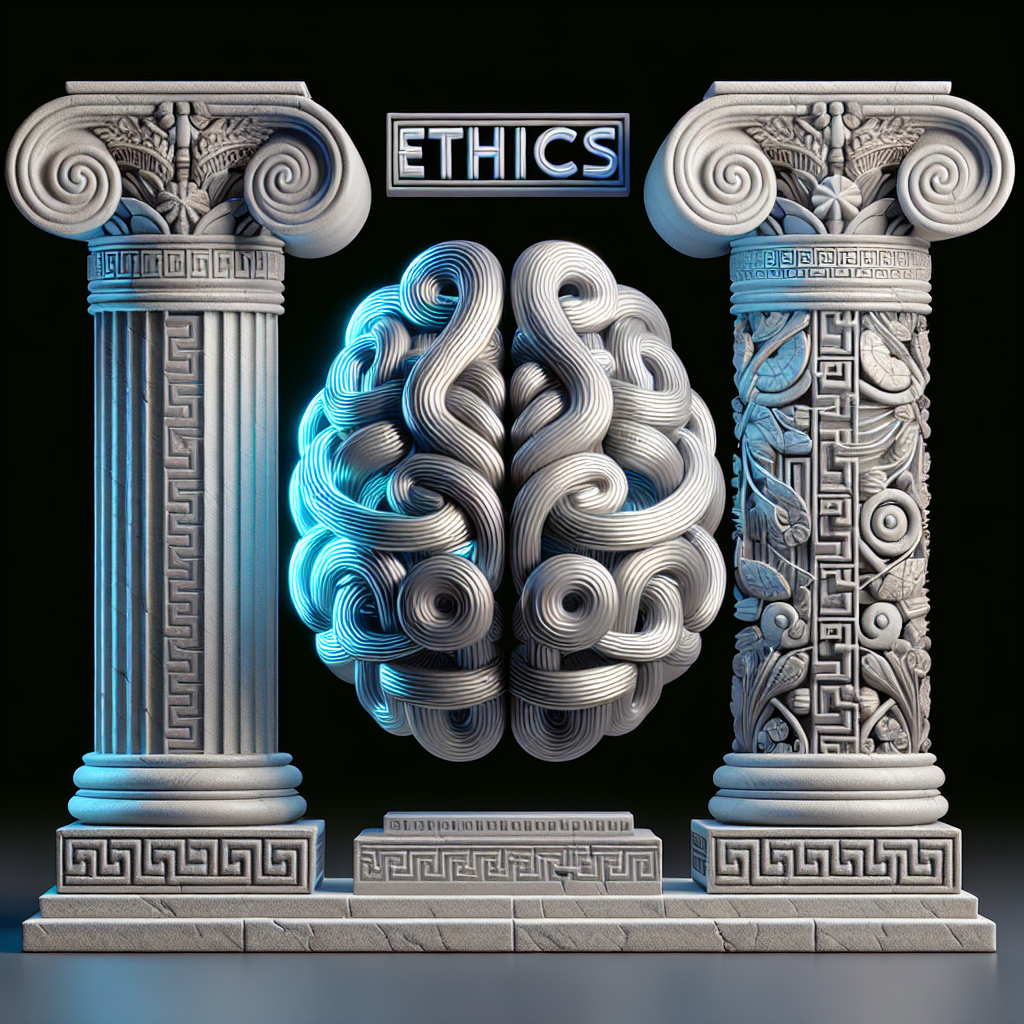Artificial intelligence (AI) is rapidly transforming the way we live, work, and interact with technology. From autonomous vehicles to virtual assistants, AI is becoming increasingly integrated into our daily lives. With this integration comes a host of ethical considerations that must be addressed to ensure that AI decision-making is fair, transparent, and aligned with societal values.
The role of ethics in AI decision-making is crucial for several reasons. First and foremost, AI systems have the potential to make decisions that impact individuals and society as a whole. These decisions can range from determining who gets a loan to who receives medical treatment. It is therefore essential that AI systems are designed and operated in a way that is ethically sound and in line with societal norms and values.
Secondly, ethical AI decision-making is essential for building trust and confidence in AI systems. If individuals do not trust that AI systems are making decisions in a fair and ethical manner, they are unlikely to use or support these systems. This lack of trust can hinder the adoption of AI technologies and limit their potential benefits.
Finally, ethical AI decision-making is important for ensuring accountability and transparency. When AI systems make decisions that have significant impacts, it is essential that there is clarity around how these decisions are made and who is responsible for them. Ethical guidelines and principles can help to establish a framework for accountability and transparency in AI decision-making.
There are a number of key ethical considerations that must be taken into account when designing and implementing AI systems. These considerations include:
1. Fairness: AI systems must be designed in a way that ensures fair and unbiased decision-making. This includes avoiding biases in data sets, algorithms, and decision-making processes that could result in discriminatory outcomes.
2. Transparency: AI systems should be transparent in how they make decisions. This includes providing explanations for decisions, disclosing how data is used, and being open about the limitations of the system.
3. Accountability: There must be clear lines of accountability for AI decision-making. This includes establishing who is responsible for the decisions made by AI systems and ensuring that there are mechanisms in place to address errors or biases.
4. Privacy: AI systems must respect individuals’ privacy rights and ensure that personal data is protected and used in a responsible manner.
5. Security: AI systems must be secure and protected from potential threats, such as hacking or manipulation, that could compromise their decision-making processes.
To address these ethical considerations, a number of organizations and initiatives have been established to develop guidelines and frameworks for ethical AI decision-making. For example, the European Commission’s High-Level Expert Group on AI has developed a set of ethical guidelines for trustworthy AI, which include principles such as transparency, accountability, and fairness.
In addition, the IEEE Global Initiative for Ethical Considerations in Artificial Intelligence and Autonomous Systems has developed a set of ethical guidelines for AI systems, which include principles such as transparency, accountability, and privacy. These guidelines are intended to provide a framework for designing and implementing ethical AI systems that are aligned with societal values and norms.
Despite these efforts, there are still many challenges and questions surrounding the role of ethics in AI decision-making. To address some of these questions, we have provided a list of frequently asked questions (FAQs) below:
FAQs:
1. What are the ethical implications of AI decision-making?
The ethical implications of AI decision-making are vast and varied. They can include issues such as bias, discrimination, privacy violations, and the potential for harm to individuals and society. It is essential that these ethical implications are carefully considered and addressed in the design and implementation of AI systems.
2. How can biases be avoided in AI decision-making?
Biases in AI decision-making can be avoided by ensuring that data sets are diverse and representative, that algorithms are designed to be fair and unbiased, and that decision-making processes are transparent and accountable. It is also important to regularly monitor and evaluate AI systems to identify and address any biases that may arise.
3. How can transparency be achieved in AI decision-making?
Transparency in AI decision-making can be achieved by providing explanations for decisions, disclosing how data is used, and being open about the limitations of the system. It is also important to involve stakeholders in the design and implementation of AI systems to ensure that decisions are made in a transparent and accountable manner.
4. Who is responsible for AI decision-making?
Responsibility for AI decision-making can be shared among a number of stakeholders, including designers, developers, operators, and users of AI systems. It is important to establish clear lines of accountability and ensure that there are mechanisms in place to address errors or biases that may arise in AI decision-making.
5. How can privacy be protected in AI decision-making?
Privacy can be protected in AI decision-making by ensuring that personal data is collected and used in a responsible and transparent manner. This includes obtaining consent from individuals before collecting their data, ensuring that data is securely stored and protected, and providing individuals with control over how their data is used.
In conclusion, the role of ethics in AI decision-making is essential for ensuring that AI systems are designed and operated in a way that is fair, transparent, and aligned with societal values. By addressing key ethical considerations such as fairness, transparency, accountability, privacy, and security, we can help to build trust and confidence in AI systems and ensure that they are used in a responsible and ethical manner.

